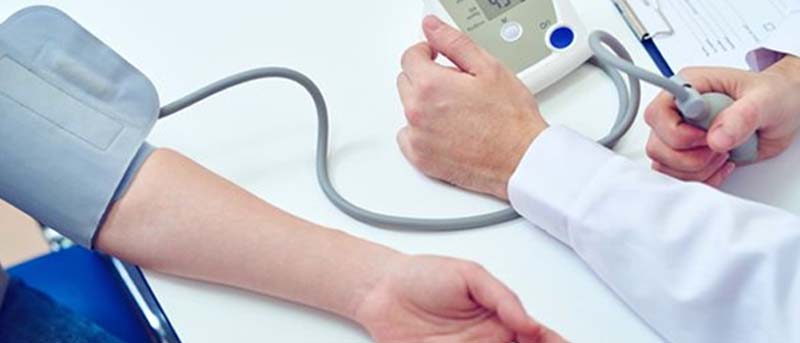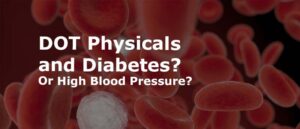What British Columbia speed limiter mandate means for you
Do you travel in or through British Columbia, Canada? There is now a speed limiter requirement affecting most heavy trucks, as of Friday April 5,
We are a team of DOT Compliance and Licensing Professionals helping trucking and transportation companies remain safe, compliant, and profitable.
CNS or Compliance Navigation Specialists is DOT Compliance company that assists trucking and transportation companies remain DOT Compliant. We are part of a network of companies, CNS Companies, specializing in services related to the transportation, manufacturing, construction, service, education and medical industries.

A full-scale DOT Compliance Program managing a long haul carrier’s safety, compliance, licensing and more.
Learn more >>>
A DOT Compliance Program that keeps motor carriers compliant with the 6 Basic DOT Regulations required of all carriers.
Learn more >>>
Our Short-Haul/Construction Program is a full-scale program designed for private carriers that do not haul for-hire.
Learn more >>>
Our most comprehensive DOT Compliance Program, operating as your company’s off-site Safety Director or assisting your current safety personnel.
Learn more >>>
Our Non-CDL Program is a full-scale program managing safety, compliance, licensing and more for moving companies, couriers, landscapers, or any company subject to DOT regulations and does not employ CDL drivers.
Learn more >>>
Our DOT Audit Services cover a number of different types of DOT Audits that new and existing carriers will be subject to.
Our DOT Driver Services help trucking companies and carriers to stay compliant as they grow and hire more drivers.
Our DOT Vehicle Services focus on ensuring your vehicles are compliant with DOT Regulations, which is just as important as your drivers.
Our DOT Services for Special Carriers focus on companies outside of the typical motor carrier, like HAZMAT, Passenger and Bus Carriers.
CNS is part of a group of companies that offer other necessary services for the trucking and transportation industry, such as Commercial Trucking Insurance, CDL Training, Online Training Course, and even Healthcare.
Our DOT Licensing Services will cover you whether you are an existing company or just starting a trucking company. Our DOT Licensing Specialists can help you get up and running and in days with your DOT number, MC Authority, EIN, UCR, IFTA, 2290 HVUT, Fuel Taxes and can even set you up to get your Commercial Driver's License (CDL) with CNS Driver Training Center.
Our DOT Licensing Specialists will help you with every aspect of starting a trucking company. All you need to do is choose a name for your trucking company.
You will need to ensure your DOT Number, MC Authority, Vehicle Registration, etc. is all set up properly when you start your trucking business.
Our Licensing Specialists can help with all aspects of filing and renewing licenses, fuel taxes, etc.
CNS is part of a group of companies that offer other necessary services for the trucking and transportation industry, such as Commercial Trucking Insurance, CDL Training, Online Training Course, and even Healthcare.
Do you travel in or through British Columbia, Canada? There is now a speed limiter requirement affecting most heavy trucks, as of Friday April 5,
CNS or Compliance Navigation Specialists is DOT Compliance company that assists trucking and transportation companies remain DOT Compliant. We are part of a network of companies, CNS Companies, specializing in services related to the transportation, manufacturing, construction, service, education and medical industries.
CNS Companies is a network of companies specializing in services related to the transportation, manufacturing, construction, service, education and medical industries. Our DOT Compliance division is handled by Compliance Navigation Specialists, CNS Insurance handles Commercial Truck Insurance, CDL training is managed by the CNS Driver Training Center and healthcare is managed by CNS Occupational Medicine.
We are a team of DOT Compliance and Licensing Professionals helping trucking and transportation companies remain safe, compliant, and profitable.
CNS or Compliance Navigation Specialists is DOT Compliance company that assists trucking and transportation companies remain DOT Compliant. We are part of a network of companies, CNS Companies, specializing in services related to the transportation, manufacturing, construction, service, education and medical industries.

A full-scale DOT Compliance Program managing a long haul carrier’s safety, compliance, licensing and more.
Learn more >>>
A DOT Compliance Program that keeps motor carriers compliant with the 6 Basic DOT Regulations required of all carriers.
Learn more >>>
Our Short-Haul/Construction Program is a full-scale program designed for private carriers that do not haul for-hire.
Learn more >>>
Our most comprehensive DOT Compliance Program, operating as your company’s off-site Safety Director or assisting your current safety personnel.
Learn more >>>
Our Non-CDL Program is a full-scale program managing safety, compliance, licensing and more for moving companies, couriers, landscapers, or any company subject to DOT regulations and does not employ CDL drivers.
Learn more >>>
Our DOT Audit Services cover a number of different types of DOT Audits that new and existing carriers will be subject to.
Our DOT Driver Services help trucking companies and carriers to stay compliant as they grow and hire more drivers.
Our DOT Vehicle Services focus on ensuring your vehicles are compliant with DOT Regulations, which is just as important as your drivers.
Our DOT Services for Special Carriers focus on companies outside of the typical motor carrier, like HAZMAT, Passenger and Bus Carriers.
CNS is part of a group of companies that offer other necessary services for the trucking and transportation industry, such as Commercial Trucking Insurance, CDL Training, Online Training Course, and even Healthcare.
Our DOT Licensing Services will cover you whether you are an existing company or just starting a trucking company. Our DOT Licensing Specialists can help you get up and running and in days with your DOT number, MC Authority, EIN, UCR, IFTA, 2290 HVUT, Fuel Taxes and can even set you up to get your Commercial Driver's License (CDL) with CNS Driver Training Center.
Our DOT Licensing Specialists will help you with every aspect of starting a trucking company. All you need to do is choose a name for your trucking company.
You will need to ensure your DOT Number, MC Authority, Vehicle Registration, etc. is all set up properly when you start your trucking business.
Our Licensing Specialists can help with all aspects of filing and renewing licenses, fuel taxes, etc.
CNS is part of a group of companies that offer other necessary services for the trucking and transportation industry, such as Commercial Trucking Insurance, CDL Training, Online Training Course, and even Healthcare.
Do you travel in or through British Columbia, Canada? There is now a speed limiter requirement affecting most heavy trucks, as of Friday April 5,
CNS or Compliance Navigation Specialists is DOT Compliance company that assists trucking and transportation companies remain DOT Compliant. We are part of a network of companies, CNS Companies, specializing in services related to the transportation, manufacturing, construction, service, education and medical industries.
CNS Companies is a network of companies specializing in services related to the transportation, manufacturing, construction, service, education and medical industries. Our DOT Compliance division is handled by Compliance Navigation Specialists, CNS Insurance handles Commercial Truck Insurance, CDL training is managed by the CNS Driver Training Center and healthcare is managed by CNS Occupational Medicine.

The entire process for getting a DOT physical goes much smoother for both the examiner and the driver when drivers are prepared for the physical exam.
Department of Transportation (DOT) physical exams ensure that drivers are in good health to do their job safely. The federal regulations require all drivers of commercial motor vehicles (CMVs) to pass a physical to obtain a DOT medical card.
A DOT physical, also called a CDL physical, is a test of your general health, mental and emotional well-being and are required for drivers at trucking, construction, local delivery, waste and recycling, moving, passenger transportation, distribution, and other companies.
If you are scheduled for a DOT Physical Exam you will need to bring your current driver’s license, updated address card (if applicable), and your current medical card.
In addition, if you are being treated by a medical provider for any of the below conditions, additional information may be needed for qualification and we recommend that it be brought along with you.
Once you arrive to the exam location, paperwork will need to be completed for the exam.
A urine sample will be collected that will check for blood, protein, and sugar in your urine. This sample is not for a drug screen.
A nurse will see you and the following will be performed:
Next you will see the medical examiner for your physical and determination. If any additional information is needed, you will be given instructions and will have 45 days to have the documentation faxed or brought in for review.
Yes, there are five main automatic disqualifications for specific medical conditions. According to federal regulations under 49 CFR 391.4, the five conditions are:
Regarding vision loss, if you do not have a correctable 20/40 vision in both your eyes, then you will be disqualified medically. Correctable vision are glasses or contacts and will be noted during the exam.
Drivers can receive diabetes and vision exemptions to drive a CMV safely.
The vision exemption is issued for a maximum of two years and is renewable but requires an annual medical and eye exam by an ophthalmologist or optometrist. The motor carrier is responsible for ensuring that the driver has the required documents before driving a CMV and the driver is responsible for carrying both the current vision exemption and current medical certificate while driving.
Some other temporary disqualifications include cardiovascular issues and psychological disorders.
Cardiovascular disqualification requires the CMV driver “to exhibit higher than acceptable likelihood of acute incapacitation from a cardia event, resulting in increased risk to the safety and health of the driver and the public.” Examiners will explain why you might be temporarily or permanently disqualified from getting a medical certificate.
Some psychological or personality disorders can directly affect memory, reasoning, attention, and judgement. “Disorders of a periodically incapacitating nature, even in the early stages of development, may warrant disqualification.”
When disqualification is made, the driver may be given steps to help fix the condition and possibly be restored to medical fitness of duty.
The examiner may also include a recommended waiting period before the examiner can authorize qualification. The driver will be disqualified from driving a CMV until the required steps and additional exam authorizes qualification.
Drivers who take any prescribed medications:
Drivers need to bring a complete list of prescribed medications, doses, and the providers contact information.
Drivers who have diabetes:
Drivers need to bring a copy of their last lab work which includes fasting blood sugar and HGA1C. Results should be from within the last 4 months. If they have a journal of your finger sticks, have that available for the exam. Those who are using insulin, please call into the office for further instructions.
Drivers who have high blood pressure:
Drivers who are being treated for high blood pressure should have the last visit note from their provider regarding their high blood pressure and blood pressure readings. Drivers should have blood work not older than 6 months (routine blood work done on High blood pressure patients, creatinine, BUN, fasting glucose, Electrolytes and ECG if 1 year or less old).
A complete list of medications used to control high blood pressure and any at home readings should be available for review during the exam.
Drivers who are required to wear eyeglasses, contact lenses, or hearing devices:
Drivers should be sure to have their glasses with them or contact lenses in place, and hearing devices for the exam.
Drivers who have heart related issues, past or current:
Drivers will need to bring documentation from their cardiologist that reviews medical history, lab work and cardiac testing. In some cases, the driver may need to bring the results of a recent ECHO cardiogram, stress test or any other required testing that has been completed within the past 1-2 years. Please call the office for further instructions and the cardiac clearance form that your provider will need to complete.
Drivers with sleep apnea:
Drivers that are currently using a CPAP machine for sleep apnea will need to bring in a printout of their usage for the last 365 days that shows usage compliance greater than 4 hours; at least 70% of the time, per night. If you have questions regarding this, please call the office for further instructions.
Drivers who are under mental health treatment:
Some mental health treatment requires medications that need to be reviewed by the medical examiner. A special form may need to be completed by the treating provider before determination can be made on the safety of operating a CMV. Please call the office for further instructions and to obtain the proper forms to have completed.
Drivers who have recently completed a SAP program:
Drivers who have completed a SAP Program need to bring their clearance forms and any documentation that shows verification of completion. For additional questions, please contact the office.
CNS offers DOT physical exams at our location in Lititz, PA with our Certified Medical Examiner (CME), and we also have mobile DOT physicals available. We know your time and money is valuable, which is why we have flexible availability during the week and the weekend.
We are efficient in scheduling appointments and respect your time, preventing you from having long wait times in crowded waiting rooms. We also have competitive rates, and we understand your budget and operating costs as a driver and/or company.
The CNS Occupational Medicine staff is experienced and friendly, and our CMEs are professionals that will effectively evaluate your status.

High blood pressure and high blood sugar levels are common conditions that many truckers deal with since cardiovascular disease is the leading cause of medical

FMCSA’s final rule was published in the Federal Register on Friday, Jan. 21. to eliminate the exemption process for commercial motor vehicle (CMV) drivers with

In what looks to be a ten-year delay, part of which first took effect in January 2015, the rule will require FMCSA to electronically transmit

Nurse triage phone lines are quickly becoming the best solution for fleets and drivers to be treated quickly and safely if feeling sick or after
Our DOT Compliance Programs ensure it is your top priority and keeps your business running.
Receive the latest transportation and trucking industry information about FMCSA and DOT Audits, Regulations, etc.

High blood pressure and high blood sugar levels are common conditions that many truckers deal with since cardiovascular disease is the leading cause of medical

FMCSA’s final rule was published in the Federal Register on Friday, Jan. 21. to eliminate the exemption process for commercial motor vehicle (CMV) drivers with

In what looks to be a ten-year delay, part of which first took effect in January 2015, the rule will require FMCSA to electronically transmit
Join our monthly newsletter and stay up-to-date on trucking industry news and receive important compliance and licensing tips.
Join our monthly newsletter and stay up-to-date on trucking industry news and receive important compliance and licensing tips.